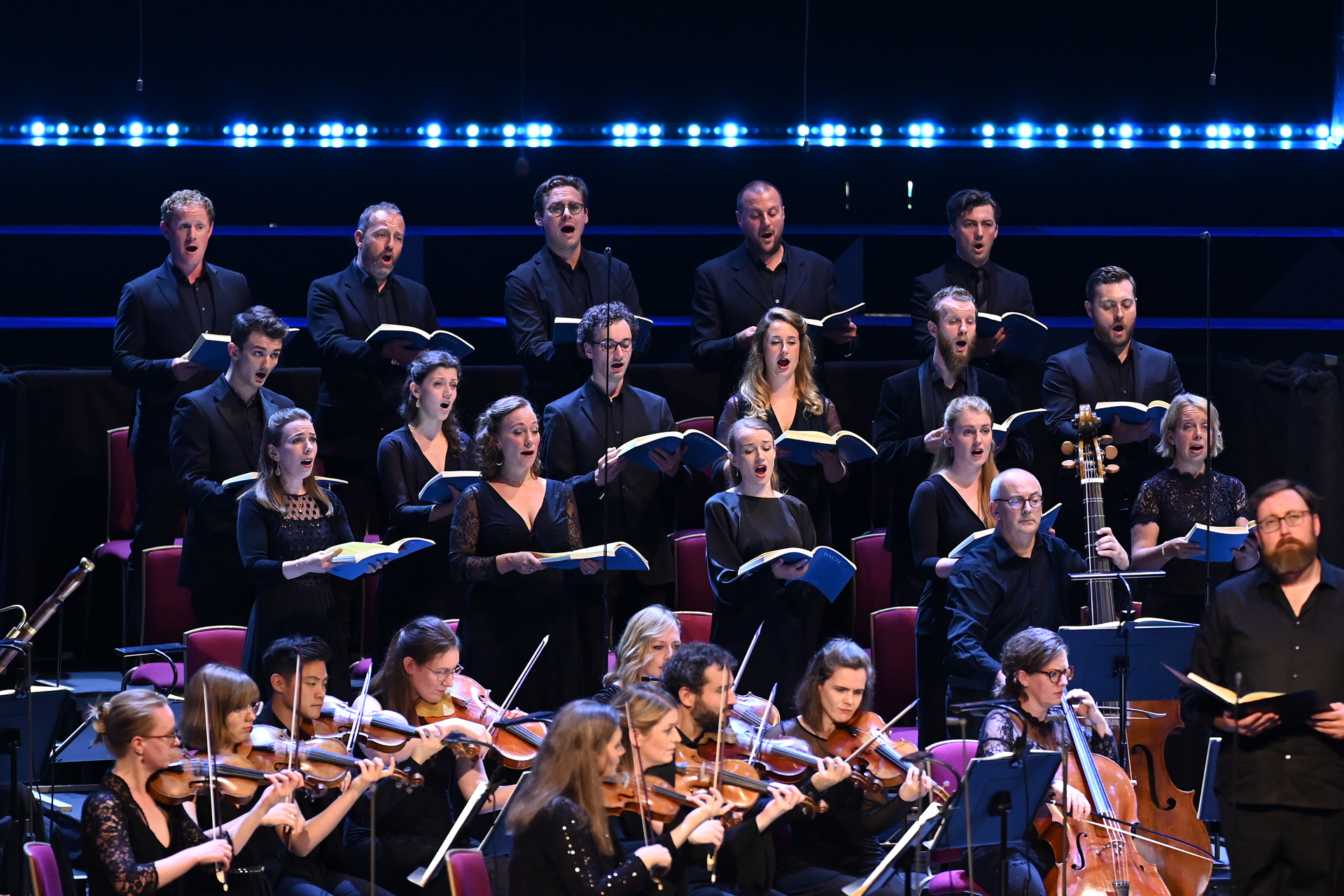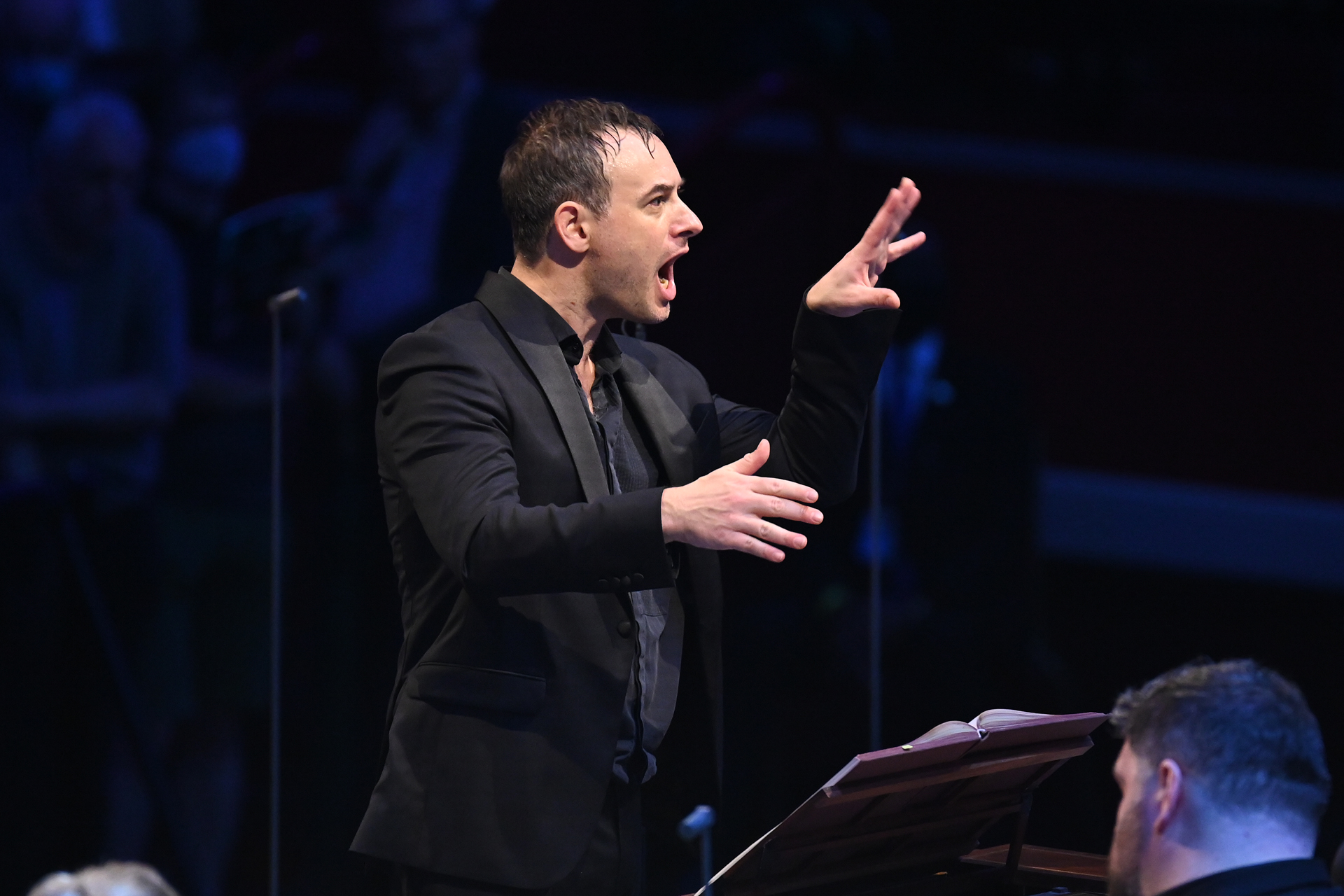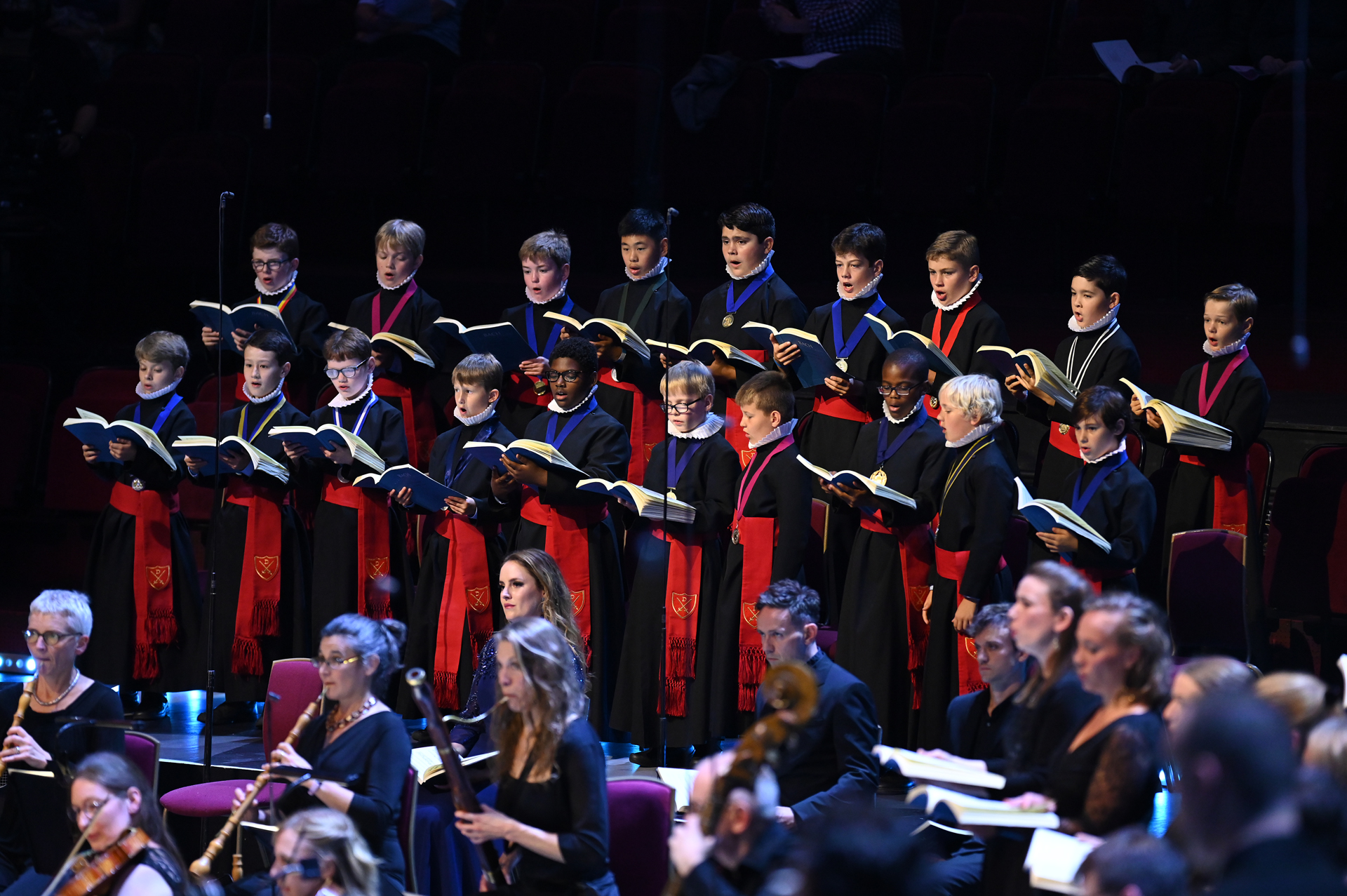St Matthew Passion, Arcangelo, Cohen, BBC Proms review – journey to the end of night | reviews, news & interviews
St Matthew Passion, Arcangelo, Cohen, BBC Proms review – journey to the end of night
St Matthew Passion, Arcangelo, Cohen, BBC Proms review – journey to the end of night
Bach's great Gospel tragedy crowns a Proms season of hope and healing
No disrespect to Sakari Oramo and his colleagues in tomorrow’s farewell jamboree, but I wonder whether this performance should have featured as the Last Night of the Proms. After all its terror, grief and sorrow, the St Matthew Passion ends with such a gentle and healing leave-taking (“Ruhe sanfte, sanfte ruh”) that it would surely capture our pandemic travails across the past two years.
Once more, after last week’s spectacular with the Monteverdi Choir, big – well, big enough, with almost 40 singers – choral forces returned to the Royal Albert Hall in music that demands pinpoint switches between roof-shaking grandeur and microscopic intimacy. Add to Arcangelo's voices and instruments (pictured below) a blazing constellation of British soloists, plus alert, vigorous but never unduly rushed direction from the ensemble's conductor-harpsichordist Jonathan Cohen, and this against-the-odds Proms season boasted another night to remember and to cherish. This evening was a special gift. Gripped, touched and delighted, the audience understood it. 
At first I even feared that an overly traditional, even staid, aura might descend as the soloists (with scores) trooped onstage one after the other in old-school oratorio style. Soon enough, however, the energy and engagement of singers (and chorus) forestalled any risk of soporific reverence. Above all what we got, from the opening “Kommt, ihr Töchter, helft mir klagen” onwards, was a tense choral dialectic. Cohen (pictured below) thrillingly launched the two bodies of voices into an ever-changing conversation that could erupt into open warfare or quieten into grieving harmony. 
Louise Alder seemed a touch overawed in her initial soprano aria, “Blute nur, du liebes Herz”, especially near the top, but soon she had the measure of this always-taxing space and quickly found a lyric sweetness buttressed with authority. Tenor Hugo Hymas ranked as the rookie in this all-star ensemble but, by the time of his anguished exchanges with the choir as betrayal looms (“O Schmerz!”), he mastered a compelling strain of mingled tenderness and plangency. Baritone Roderick Williams – more luxury casting – announced in the plaintive, yearning but richly modulated phrasing of “Gerne will it mich bequemen” an introspective depth that would come further to fruition in the second half.
Meanwhile the Arcangelo players – oboes, flutes, the violins (Sophie Gent and Matthew Truscott) who led both orchestras – stood proudly for one eloquently delivered solo passage after another. All of them, though, rested on the firm foundation of the double choir – nicely complemented by the clear, disciplined and piercing young forces from St Paul’ (pictured below). In the chorales, never soothing punctuation marks but knots of dramatic change and crisis in their own right, Cohen drew out a vast spectrum of colours, from the light, swift and springy entrance of the great Passion theme in “Erkenne mich, mein Hüter” to the deepening contrapuntal tapestry of guilt and hope in “O Mensch, bewein’ dein’ Sünde gross”. 
As the climax of crucifixion and entombment neared, struck and passed, the choirs’ role as interpreter and interlocutor came to the fore with jolting, hard-edged interjections and chorales. Lines struck home with a mortified sense of pain, edge and bite, rather than the tranquillising monumentality of old-style choral Bach. By the time they blessed us with the parting “Wir setzen uns mit Tränen nieder”, though, Cohen and his troops had enveloped their audience in a hard-won serenity that filled the hall, and filled the heart.
Here was a huge Proms statement, made with no showy stunts but with tremendous warmth, generosity and finesse at a moment poised – as on some Good Friday in Leipzig 275 years ago – between memories of anguish and hopes of renewal. And everyone can share it. If such a night doesn’t prove how much we need this festival, what will?
rating
Explore topics
Share this article
Add comment
The future of Arts Journalism
You can stop theartsdesk.com closing!
We urgently need financing to survive. Our fundraising drive has thus far raised £49,000 but we need to reach £100,000 or we will be forced to close. Please contribute here: https://gofund.me/c3f6033d
And if you can forward this information to anyone who might assist, we’d be grateful.

Subscribe to theartsdesk.com
Thank you for continuing to read our work on theartsdesk.com. For unlimited access to every article in its entirety, including our archive of more than 15,000 pieces, we're asking for £5 per month or £40 per year. We feel it's a very good deal, and hope you do too.
To take a subscription now simply click here.
And if you're looking for that extra gift for a friend or family member, why not treat them to a theartsdesk.com gift subscription?
more Classical music
 Hallé John Adams festival, Bridgewater Hall / RNCM, Manchester review - standing ovations for today's music
From 1980 to 2025 with the West Coast’s pied piper and his eager following
Hallé John Adams festival, Bridgewater Hall / RNCM, Manchester review - standing ovations for today's music
From 1980 to 2025 with the West Coast’s pied piper and his eager following
 Kaploukhii, Greenwich Chamber Orchestra, Cutts, St James's Piccadilly review - promising young pianist
A robust and assertive Beethoven concerto suggests a player to follow
Kaploukhii, Greenwich Chamber Orchestra, Cutts, St James's Piccadilly review - promising young pianist
A robust and assertive Beethoven concerto suggests a player to follow
 Robin Holloway: Music's Odyssey review - lessons in composition
Broad and idiosyncratic survey of classical music is insightful but slightly indigestible
Robin Holloway: Music's Odyssey review - lessons in composition
Broad and idiosyncratic survey of classical music is insightful but slightly indigestible
 Classical CDs: Wolf-pelts, clowns and social realism
British ballet scores, 19th century cello works and contemporary piano etudes
Classical CDs: Wolf-pelts, clowns and social realism
British ballet scores, 19th century cello works and contemporary piano etudes
 Bizet in 150th anniversary year: rich and rare French offerings from Palazzetto Bru Zane
Specialists in French romantic music unveil a treasure trove both live and on disc
Bizet in 150th anniversary year: rich and rare French offerings from Palazzetto Bru Zane
Specialists in French romantic music unveil a treasure trove both live and on disc
 Scottish Chamber Orchestra, Ibragimova, Queen’s Hall, Edinburgh review - rarities, novelties and drumrolls
A pity the SCO didn't pick a better showcase for a shining guest artist
Scottish Chamber Orchestra, Ibragimova, Queen’s Hall, Edinburgh review - rarities, novelties and drumrolls
A pity the SCO didn't pick a better showcase for a shining guest artist
 Kilsby, Parkes, Sinfonia of London, Wilson, Barbican review - string things zing and sing in expert hands
British masterpieces for strings plus other-worldly tenor and horn - and a muscular rarity
Kilsby, Parkes, Sinfonia of London, Wilson, Barbican review - string things zing and sing in expert hands
British masterpieces for strings plus other-worldly tenor and horn - and a muscular rarity
 From Historical to Hip-Hop, Classically Black Music Festival, Kings Place review - a cluster of impressive stars for the future
From quasi-Mozartian elegance to the gritty humour of a kitchen inspection
From Historical to Hip-Hop, Classically Black Music Festival, Kings Place review - a cluster of impressive stars for the future
From quasi-Mozartian elegance to the gritty humour of a kitchen inspection
 Shibe, LSO, Adès, Barbican review - gaudy and glorious new music alongside serene Sibelius
Adès’s passion makes persuasive case for the music he loves, both new and old
Shibe, LSO, Adès, Barbican review - gaudy and glorious new music alongside serene Sibelius
Adès’s passion makes persuasive case for the music he loves, both new and old
 Anja Mittermüller, Richard Fu, Wigmore Hall review - a glorious hall debut
The Austrian mezzo shines - at the age of 22
Anja Mittermüller, Richard Fu, Wigmore Hall review - a glorious hall debut
The Austrian mezzo shines - at the age of 22
 First Person: clarinettist Oliver Pashley on the new horizons of The Hermes Experiment's latest album
Compositions by members of this unusual quartet feature for the first time
First Person: clarinettist Oliver Pashley on the new horizons of The Hermes Experiment's latest album
Compositions by members of this unusual quartet feature for the first time

Comments
Wonderful review
Yes indeed. Williams
Love Williams' rich tones and
I agree. A wholly enthralling
A profoundly memorable
I am a regular concert-goer